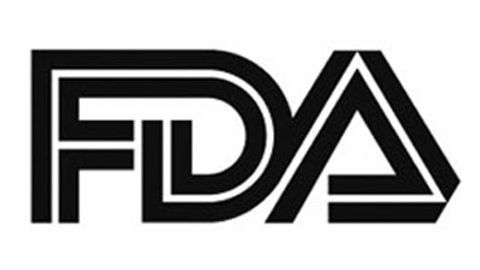FDA Approves 1L Pembrolizumab Combination in Locally Advanced Unresectable or Metastatic HER2+ Gastric/GEJ Cancers
The FDA has granted accelerated approval to pembrolizumab plus trastuzumab, fluoropyrimidine- and platinum-containing chemotherapy for the frontline treatment of patients with locally advanced unresectable or metastatic HER2 positive gastric or gastroesophageal junction cancer.

The FDA has granted accelerated approval to pembrolizumab (Keytruda) in combination with trastuzumab (Herceptin), fluoropyrimidine- and platinum-containing chemotherapy for the first-line treatment of patients with locally advanced unresectable or metastatic HER2-positive gastric or gastroesophageal junction (GEJ) adenocarcinoma, according to press releases from Merck and the FDA.1,2
Interim analysis results from the phase 3 KEYNOTE-811 trial (NCT03615326) served as the basis for the FDA approval after pembrolizumab plus trastuzumab, fluoropyrimidine- and platinum-containing chemotherapy achieved high responses in the study patients.
“Today’s approval marks an important milestone, as this is the first time an anti-PD-1 therapy has been approved in combination with anti-HER2 therapy and chemotherapy as a first-line treatment for these patients,” said Roy Baynes, PhD senior vice president and head of global clinical development, chief medical officer, Merck Research Laboratories, in a statement. “From the start of Keytruda’s development, we have thoughtfully pursued novel combinations to help more patients with cancer. We are pleased to bring a new first-line combination regimen with Keytruda that has shown meaningful improvement in ORR over standard treatment to patients with HER2-positive gastric and GEJ cancer.”
In the study, patients were randomized 1:1 to receive pembrolizumab 200 mg or placebo every 3 weeks, in combination with trastuzumab and either fluorouracil plus cisplatin or capecitabine in combination with oxaliplatin. Patients enrolled were evaluated for the coprimary end points of progression-free survival (PFS), and overall survival (OS). The secondary end points included objective response rate (ORR), duration of response (DOR), adverse events (AEs), and the rate of treatment discontinuation due to AEs.
The cohort of 264 included in the interim analysis had an ORR of 74% (95% CI, 66%-82%) on treatment with the pembrolizumab combination compared with 52% (95% CI, 43%-61%) with the placebo combination (one-sided P <.0001). The results met the threshold for statistical significance. Responses were also durable with the median DOR being 10.6 months (range, 1.1+ to 16.5+ months) in the pembrolizumab arm compared with 9.5 months (range, 1.4+ to 15.4+ months) for those in the placebo arm.
It was also reported in the press release that the safety profile observed with pembrolizumab in the study was consistent with prior reports.
Patients received pembrolizumab in the study for a median of 5.8 months (range, 1 day to 17.7 months). Both the pembolizumab and placebo arms of the study saw a 6% discontinuation rate. Pneumonitis occurring in 1.4% of patients was the most common AE that led to permanent discontinuation of pembrolizumab. Common AEs that lead to disruption of pembolizumab treatment included neutropenia (18%), thrombocytopenia (12%), diarrhea (6%), anemia (3.7%), hypokalemia (3.7%), fatigue/asthenia (3.2%), decreased appetite (3.2%), increased aspartate aminotransferase (AST) (2.8%), increased blood bilirubin (2.8%), pneumonia (2.8%), increased alanine aminotransferase (ALT) (2.3%) and vomiting (2.3%).
Although publishing of full results is still pending for KEYNOTE-811, pembrolizumab has shown promising antitumor activity in patients with advanced gastric or GEJ adenocarcinoma as monotherapy as well as in combination with chemotherapy and in combination with trastuzumab preclinically. Investigators for KEYNOTE-811 hypothesized that combining the therapies together may enhance the benefit for these patient populations.2
In the investigation, patients are eligible to enroll given they are 18 years of age or older with previously untreated unresectable or metastatic HER2+ gastric or GEJ cancer. Patients are required to have a life expectancy of at least 6 months, measurable disease per RECIST v1.1, adequate organ function, and an ECOG performance status of 0 or 1. The study is actively recruiting patients who meet these criteria.
References:
1. FDA approves Merck’s KEYTRUDA® (pembrolizumab) combined with trastuzumab and chemotherapy as first-line treatment in locally advanced unresectable or metastatic her2-positive gastric or gastroesophageal junction adenocarcinoma. News release. May 5, 2021. Accessed May 5, 2021. https://bit.ly/3ejHqjR
2. FDA grants accelerated approval to pembrolizumab for HER2-positive gastric cancer. News release. May 5, 2021. Accessed May 5, 2021. https://bit.ly/3eZFax4
3. ChungHC, Bang YJ, Fuchs CS, et al. First-line pembrolizumab/placebo plus trastuzumab and chemotherapy in HER2-positive advanced gastric cancer: KEYNOTE-811. Future Oncol. 2021; 17(5):491-501. doi:10.2217/fon-2020-0737.